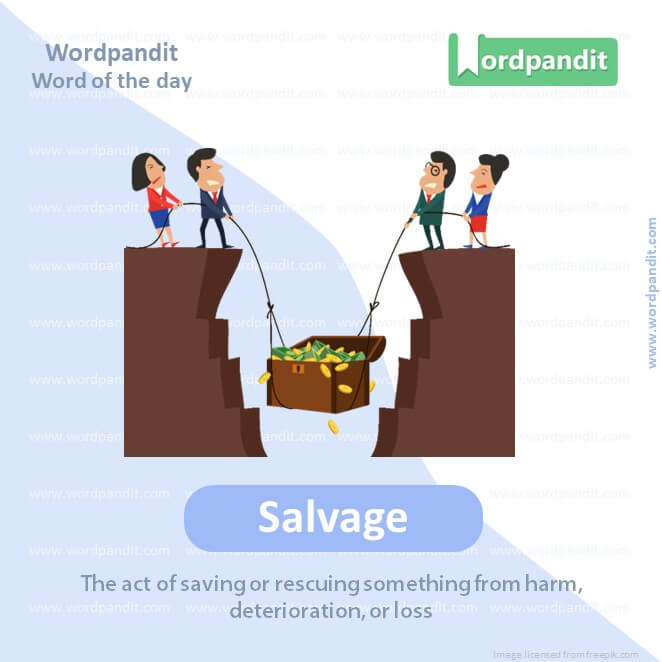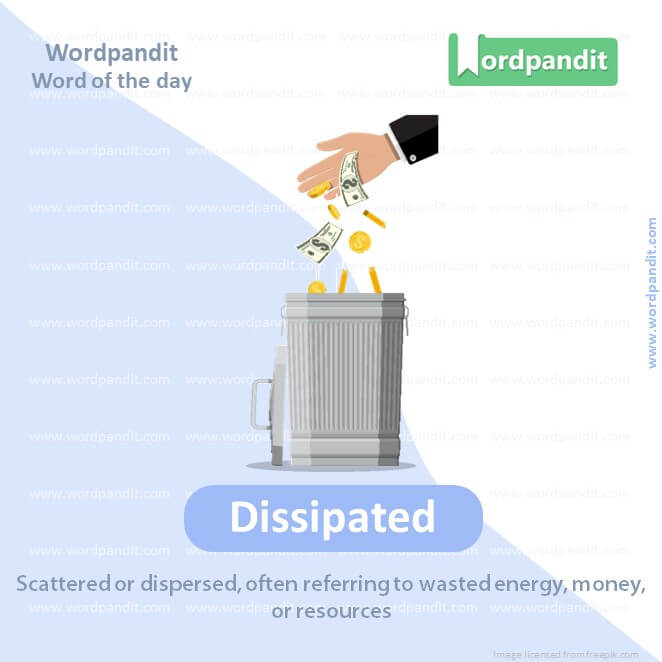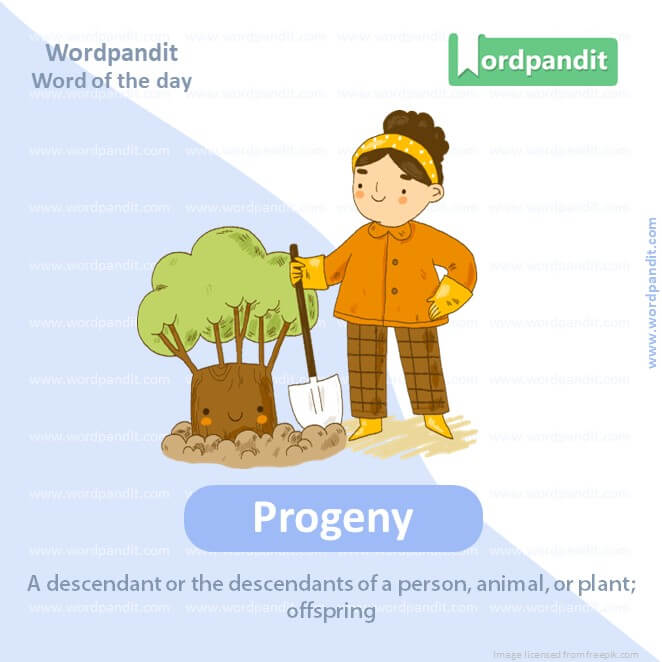Daily Vocabulary Words: List of Daily Used Words in Leading Indian Newspapers
Hi there. Welcome to this special section @ Wordpandit. Our endeavour here is straightforward: highlighting daily vocabulary words that you would come across in leading newspapers in the country. We have included the following newspapers in our selection:
• The Times of India
• The Economic Times
• Hindustan Times
• Mint
• Indian Express
We are putting in extensive work to develop your vocabulary. All you have to do is be regular with this section and check out this post daily. This is your repository of commonly used words; essentially, we are posting a list of daily used words. Hence, this has significant practical application as it teaches you words that are commonly used in leading publications mentioned above.
Visit the website daily to learn words from leading Indian newspapers.
WORD-1: CONTEMPLATE
CONTEXT: The government seems to contemplate measures to stimulate economic growth, like triggering infrastructural initiatives or cutting taxes, as the job market remains stagnant.
SOURCE: The Economic Times
EXPLANATORY PARAGRAPH: Contemplate is kind of like when you’re trying to solve a really big puzzle in your head. You’re thinking really hard about it and trying to figure it out.
MEANING: To think profoundly about something; to consider with utmost care (verb).
PRONUNCIATION: kənˈtɛm pleɪt
SYNONYMS: Consider, Ponder, Meditate, Mull over, Reflect, Deliberate, Ruminate.
USAGE EXAMPLE:
1. I need to contemplate before I make a decision.
2. She sat quietly, contemplating the complexity of the situation.
3. The scientist contemplated the nature of the universe.
4. He felt anxious as he contemplated his future.

WORD-2: HAWKISH
CONTEXT: The Reserve Bank’s monetary policy remained hawkish even with signs of a slowing economy, as inflation continued to rise for the fourth straight month.
SOURCE: Hindustan Times
EXPLANATORY PARAGRAPH: Imagine an eagle or hawk who is always ready to dive to catch its prey. That’s what hawkish means – it’s when someone is always ready for a fight or a struggle.
MEANING: Advocating an aggressive or war like policy, especially in foreign affairs (adjective).
PRONUNCIATION: ˈhɔːkɪʃ
SYNONYMS: Aggressive, Militant, Warlike, Belligerent, Combative, Pugnacious, Warmongering.
USAGE EXAMPLE:
1. Their diplomat has a reputation for being hawkish.
2. The paper published an editorial with a hawkish stance on immigration.
3. The government’s hawkish attitude towards its neighbour created tension in the region.
4. The president’s hawkish policies have led to unrest within the country.

WORD-3: SALVAGE
CONTEXT: In a desperate attempt to salvage its standing with consumers, the beleaguered e-retailer rolls out a series of customer-centric initiatives.
SOURCE: The Times of India
EXPLANATORY PARAGRAPH: Salvage is like when you save something from getting completely wasted or lost – like when you drop your ice cream but catch it before it hits the ground.
MEANING: The act of saving or rescuing something from harm, deterioration, or loss (verb)
PRONUNCIATION: ˈsælvɪdʒ
SYNONYMS: Retrieve, Recover, Rescue, Reclaim, Redeem, Save, Preserve.
USAGE EXAMPLE:
1. The firemen worked to salvage what they could from the burning building.
2. I managed to salvage my grades with some extra credit work.
3. The team worked hard to salvage the project after the main investor pulled out.
4. Archaeologists were able to salvage a few artefacts from the site.
WORD-4: WANTON
CONTEXT: The wanton destruction of flora during the urban development programs has evoked severe criticism from environmental activists and NGOs.
SOURCE: Indian Express
EXPLANATORY PARAGRAPH: Wanton is like when someone does something mean for no reason at all. They don’t care who it hurts or why they’re doing it; they just do it.
MEANING: Deliberate and unprovoked harmful action; lascivious (adjective)
PRONUNCIATION: ˈwɑːntən
SYNONYMS: Reckless, Frivolous, Uncontrolled, Wild, Undisciplined, Debauched, Lewd.
USAGE EXAMPLE:
1. It was a wanton act of vandalism.
2. She lived a life of wanton luxury.
3. His wanton disregard for his neighbour’s property upset many people.
4. The judge condemned the wanton killing of innocent civilians.

WORD-5: DISSIPATED
CONTEXT: The benefits of the economic boom of the last decade seem to have dissipated, with a majority of the population worse off than they were ten years back.
SOURCE: Mint
EXPLANATORY PARAGRAPH: Dissipated is when you have lots of something, like popcorn, but little by little, it all goes away until there’s nothing left. It’s like when your popcorn gets eaten during the movie.
MEANING: Scattered or dispersed, often referring to wasted energy, money, or resources (adjective)
PRONUNCIATION: ˈdɪsɪpeɪtɪd
SYNONYMS: Squandered, Wasted, Spent, Debauched, Degenerate, Misused, Overindulging.
USAGE EXAMPLE:
1. His wealth had rapidly dissipated on luxuries and bad investments.
2. The dissipating mist revealed a beautiful landscape.
3. She lived a dissipated lifestyle in her youth.
4. He led a dissipated life filled with excess and indulgence.

WORD-6: Progeny
CONTEXT: The wealthy merchant, with no progeny to inherit his vast estates, declared that his fortune would go to various charities after his demise.
SOURCE: The Times of India
EXPLANATORY PARAGRAPH: You know how you’re your mom’s and dad’s child? That’s what progeny means. It’s a fancy word for children or offspring.
MEANING: A descendant or the descendants of a person, animal, or plant; offspring (noun).
PRONUNCIATION: ˈprɑːdʒəni
SYNONYMS: Offspring, Children, Descendants, Young, Heirs, Lineage, Issue.
USAGE EXAMPLE:
1. The king was delighted with his numerous progeny.
2. She was proud of the achievements of her progeny.
3. The plants are hardy progeny of a cross between two species.
4. They were the progeny of mixed marriages.

WORD-7: Docile
CONTEXT: The once rowdy legislature has become surprisingly docile, with members seldom raising objections or questioning executive decisions.
SOURCE: The Economic Times
EXPLANATORY PARAGRAPH: Docile means someone or something is easy to handle or control. Like a very well-behaved pet that listens to your commands, that’s docile.
MEANING: Ready to accept control or instruction; submissive (adjective).
PRONUNCIATION: ˈdɑːsəl
SYNONYMS: Submissive, Obedient, Compliant, Tractable, Manageable, Accommodating, Meek.
USAGE EXAMPLE:
1. The docile dog sat when its owner told it to.
2. The teachers found the students surprisingly docile.
3. The large animal was surprisingly docile.
4. The once rowdy class is now docile and focused.
WORD-8: Adroitly
CONTEXT: The foreign minister adroitly handled the delicate negotiations ensuring benefits for our country against strong resistance.
SOURCE: Indian Express
EXPLANATORY PARAGRAPH: Adroitly means doing something skillfully and cleverly. Like if you solve a hard puzzle quickly and with no mistakes, you did it adroitly!
MEANING: In a manner showing skillful use of the hands or mind; cleverly and adeptly (adverb).
PRONUNCIATION: əˈdrɔɪtli
SYNONYMS: Skillfully, Expertly, Nimbly, Deftly, Dexterously, Cleverly, Aptly.
USAGE EXAMPLE:
1. He adroitly managed the difficult situation.
2. The magician adroitly performed the trick.
3. She danced adroitly across the stage.
4. She adroitly responded to the complex question.
WORD-9: Glut
CONTEXT: The glut in the housing market has led to a sharp drop in prices; benefiting homebuyers but causing builders to hit the panic button.
SOURCE: Hindustan Times
EXPLANATORY PARAGRAPH: Glut is when you have too much of something, like when you have lots of candies but your pocket is too full to take any more!
MEANING: An excessively abundant supply of something; to supply or fill to excess (noun/verb).
PRONUNCIATION: ɡlʌt
SYNONYMS: Surplus, Excess, Oversupply, Overload, Overabundance, Surfeit, Profusion.
USAGE EXAMPLE:
1. There is currently a glut of graduates in the job market.
2. The global oil glut led to a significant fall in prices.
3. Don’t glut yourself on sweets.
4. The market is glutted with goods.
WORD-10: Blatant
CONTEXT: The blatant abuse of power by the government has resulted in a widespread outcry and a demand for transparency.
SOURCE: Mint
EXPLANATORY PARAGRAPH: Blatant means doing something wrong or bad in a very open and easy-to-see way. If your sibling takes your favorite toy right in front of you and mom, that’s a blatant grab.
MEANING: Done openly and unashamedly; very obvious (adjective).
PRONUNCIATION: ˈbleɪtnt
SYNONYMS: Flagrant, Glaring, Obvious, Conspicuous, Brazen, Shameless, Unconcealed.
USAGE EXAMPLE:
1. This is a blatant example of prejudice.
2. The politician’s blatant lie was caught on video.
3. The company was criticized for its blatant disregard for user privacy.
4. He made a blatant attempt to cheat in the examination.
vocabulary diary
The traditional method of expanding your vocabulary has always involved reading extensively and learning new words as you go. In the digital age, however, a more personalized, engaging, and effective tool has emerged on the scene – the ‘vocabulary diary’. This journal-like tool is an innovative approach to language learning that guarantees significant improvement in one’s linguistic prowess and expressive ability.
A vocabulary diary enables systematic learning with a structured approach. Rather than stumbling upon new words haphazardly, you deliberately focus on new and intriguing words that catch your attention. These words are then recorded in your vocabulary diary, creating a personalized dictionary that keeps expanding.
Learning with a vocabulary diary is not about rote memorization. It’s about understanding, application, and repeated usage. When you stumble across a novel term, jot it down in your vocabulary diary along with its meaning, synonyms, antonyms, and an example sentence. This will help reinforce your understanding and contextually anchor the new word in your memory.
Using your vocabulary diary regularly also allows for review and revision. You can revisit previously learned words, ensuring they’ve been effectively embedded in your everyday vocabulary. Furthermore, having a dedicated section for phrases or idioms can enhance your language proficiency beyond single words.
However, the success of your vocabulary diary depends on consistent and devoted use. Make it a part of your daily routine. After all, the vocabulary diary is not just a static record of words; it’s a living, evolving document that mirrors your linguistic growth. It requires attention and careful nurturing.
In conclusion, the vocabulary diary offers a comprehensive and individualized approach to vocabulary enhancement. It bridges the gap between passive reading and active learning, transforming the way we perceive word acquisition. Embrace the vocabulary diary not only as a tool for intellectual growth but also as an enjoyable and fulfilling literary adventure.













